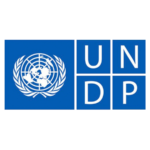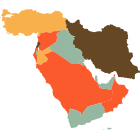Evaluating 'Strengthening Arab Economic Integration for Sustainable Development' - UNDP
Background
For over a decade, Arab states have become increasingly enthusiastic about the benefits of greater economic integration across the region. The experiences of neighbouring countries indicate that building a shared economic space can reap various socio-economic advantages.
These regional integration frameworks remove tariffs imposed on imported goods and services, provide for fluid trade in services, and allow both capital and citizens to move freely. Under these conditions, state economies can grow stronger by building expanded, regional markets for goods and services, while also promoting development and fairer wealth distribution.
As far back as 1957, the LAS concluded an agreement to provide for an integrated regional economy, largely mirroring the European Union’s current arrangement. Today, however, the Arab world remains far from achieving this objective. Arab countries have maintained most tariffs on goods from other LAS member states, regional trade accounts for a fraction of overall commerce, and labour mobility between Arab countries is still very low.
Several LAS member states have accepted the need to adopt extensive trade policy reforms to create a common market. Modern free trade agreements approach economic integration holistically, looking beyond tariffs to overall supply chain barriers to trade, such as high taxation on manufacturing. By contrast most Arab states remain stuck with the decades-old, goods-focused GATT principles.
When crafting regional trade policy, gender sensitivity stands out as a salient issue due to current labour market conditions. In the Arab World, gender inequalities in access to productive assets such as land and credit, or storage and transport facilities, tend to constrain women’s benefits from trade policies.
The imperative for improved economic growth has become especially urgent in the Arab world. Limited integration of Arab economies in the global value chain (measured mainly by trade in intermediate goods) and the relative absence of an Arab regional value chain should signal the need for a new setup in light of the disruption that happened to global value chains due to the COVID-19 pandemic.
Triangle’s Assessment
- Triangle conducted an assessment of the UNDP project’s performance and results using the OECD/DAC criteria to ensure accountability.
- The analysis focused on the UNDP project’s approach to addressing strategic bottlenecks, including institutional resistance to change. This research aimed to inform future policymaking priorities and strategies for sustainable and inclusive structural transformation.
- The UNDP project aimed to address policy and legal changes to enhance gender mainstreaming in trade policies. The assessment analyzed the promotion of women’s empowerment and gender equality throughout the project.
- Triangle identified and analyzed assessment findings to incorporate lessons learned and provide recommendations for the future design of similar projects.
Project:
Final Evaluation of ‘Strengthening Arab Economic Integration for Sustainable Development’ – UNDP

Duration:
November 2021 – February 2022
Arab States Region
